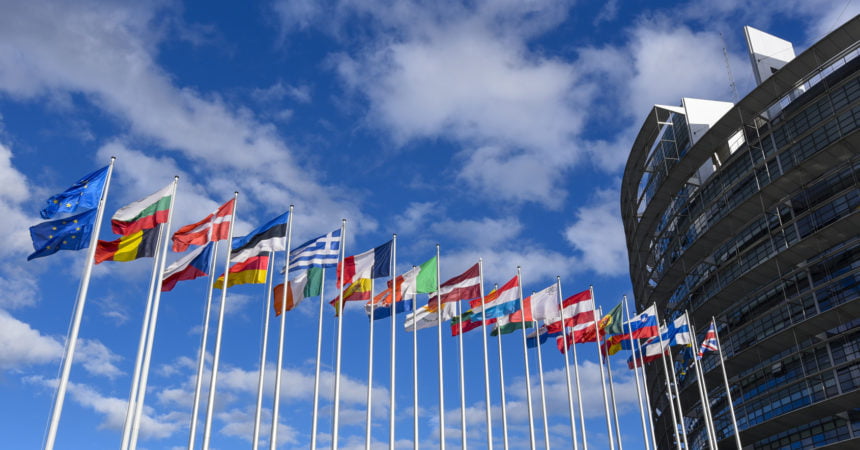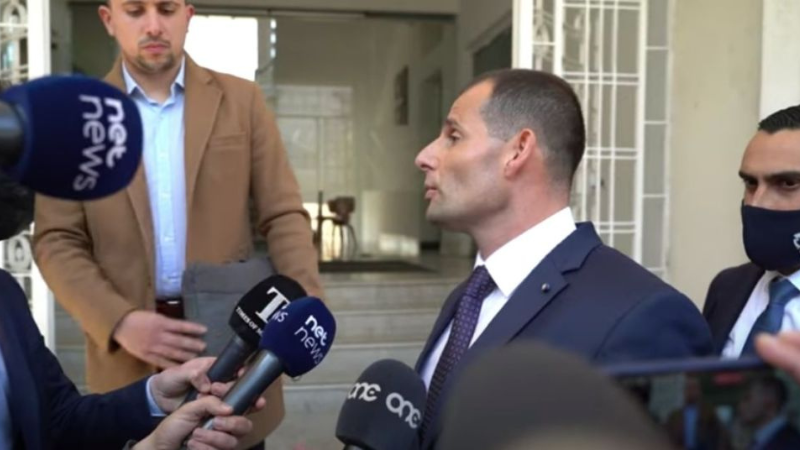An ambitious timeline has been set for the introduction of an anti-SLAPP directive, aimed at countering threats to newsrooms from corporations and governments seeking to silence critical stories.
In a debate with journalists held today led by MEPs Roberta Metsola (EPP) and Tiemo Wölken (S&D), the European Parliament’s efforts to introduce measures to protect freedom of speech and freedom of information were outlined.
Newsrooms and journalists across the EU are facing increasing threats from powerful interests to silence stories through SLAPP – Strategic Lawsuits Against Public Participation. These are financially crippling lawsuits, often filed in foreign jurisdictions, that are close to impossible for journalists to fight.
The cost of mounting a defence is often prohibitive. This results in stories being withdrawn, even if factual, and self-censorship. Most newsrooms in Malta have been hit by SLAPP threats multiple times, as in the case of the reporting on SOCAR’s representative in the Electrogas deal – Turab Musayev, passport firm Henley and Partners, and Pilatus Bank owner Ali Sadr Hasheminejad.
Metsola described this effort as a “watershed moment”. Stressing the need for the EU to act, she said the situation at the moment is one where “those with the means get what they want and the story is killed”.
“Our values must be protected by our laws,” she added.
The measures being considered to help journalists address this problem and safeguard freedom of information include sanctions against those who abuse the system, training for the judiciary to address vexatious and SLAPP cases, measures for the judiciary to enable an early motion for dismissal, and a centre for advice and support to journalists.
Following a discussion in the LIBE committee earlier today, the two MEPs hope to have a draft report tabled before the end of June, leading up to a vote in plenary by October.
Push back by the governments of some Member States is expected. In Malta, the Opposition has twice proposed amendments to the media law to address the threat. These efforts were rejected by the government.
Asked if the MEPs had met resistance, Metsola said political will was crucial and that there was a degree of push back from some governments “especially those covering up lies and horrific crimes and employing PR firms to manage reputations”.
Yet she stressed there was a great deal of goodwill. “We are determined to deliver and work closely with the European Commission to see this through,” Metsola said.
Listing a number of cases being faced by journalists and newsrooms in different European countries, Wölken explained there were three main elements that would serve as a basis for the directive: To achieve minimum standards across the EU, a revision of applicable international laws, and the introduction of non-legislative matters such as financial and logistical support for journalists.
He stressed that the need to end the legal harassment of journalists was a priority: “The environment for journalists is already increasingly hostile. Journalists are under threat. This makes me sad and angry.”
“We must secure the fundamental principles of the EU. The rule of law and freedom of expression have no political colour or nationality,” Wölken said.














Bottom line being if politicians can’t take the heat, they need to get out of the kitchen.
Roberta and David keep pushing for the anti-slapp directive, after all, ALL European countries (except the ultra corrupt ones) should agree if they really want democracy to survive – otherwise people will start to lose their confidence in the highest European institution.